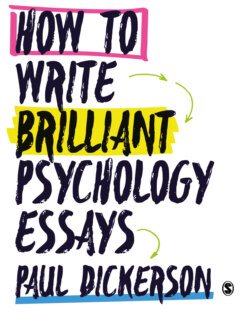Читать книгу How to Write Brilliant Psychology Essays - Paul Dickerson - Страница 55
На сайте Литреса книга снята с продажи.
Locating your (re)sources
ОглавлениеWhat do you need to find out in order to solve this essay?
Start by noting what you know – briefly jot down all the thoughts and ideas that you have regarding the essay title that you are working on.
Then identify what you need to find out – you might need further details, names and dates, specific bits of information, or it could be more generic, such as ‘information that I can use to critique the Multi-Store Model’.
Note where you can look to find this out – don’t just lazily list ‘on the web’, be precise. Is it in your lecture notes, a textbook or an item on the reading list?
Make use of your notes, textbook and other material that has been identified as being important on your course, and specifically for this topic and this essay. This is most likely to include key information – do make use of it.
Identify the potential challenges along the way – there are possibly things that might be difficult to find. Perhaps the hardest are those we are not yet aware of – perhaps there are excellent reviews of the evidence that we do not know of, which could be invaluable. Try to envisage what might exist as well as looking for the bare essentials of what you need.
Be careful as you enter your distraction zones! Yours might be as you search on the web, or look for your notes, or go to find a textbook. Be aware of where you are most likely to be distracted away from your goal and acknowledge the temptation, without giving in to it. Gamify it: give yourself 50 points, a cut-out and keep medal, or some other reward for running three Google searches without suddenly being caught by YouTube videos of a fish that can speak fluent Spanish. All those distractions will still be there later.
Identify what you could include that might make your essay shine. Would a meta-analysis relating to the issue be relevant? Perhaps there is a recent empirical or review paper, or a paper which details a different perspective on the issue? This can be especially valuable if the topic of your essay has a well-trodden debate (the nature–nurture debate being the most obvious example of this).
This active–engagement approach is so different from the 20 or so Google searches we might do each day, which can be unthinking, almost automatic responses, like scratching, simply performed to relieve the inconvenient sense of not knowing. Here we are being strategic: we are thinking and planning before searching. Doing it this way means that we approach sources proactively, strategically – that is, with a sense of how we might use them. Yes, they will suggest modifications to our plans, they will offer something that differs from what we expected, but we have approached them as mind meets mind – not mind meets photocopier. Adopting this proactive engagement approach is a massive step towards making whatever we find our own.
